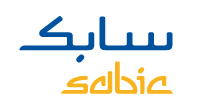
21 Feb 2013
HDPE Blow Molders Set to Benefit from Increased Choice in Bimodal HDPE as SABIC entering the Market
SITTARD, The Netherlands, February 21, 2013 - Producers of blow molded bottles for household and industrial chemicals and for personal care will soon be able to benefit from an added choice in supply of bimodal high density polyethylene (HDPE). SABIC is readying facilities at its plant in Gelsenkirchen, Germany, due to start of commercial production in the second quarter of this year, with grades suitable for containers up to 5L. The same grades, as well as grades intended for jerry cans, drums and other large containers, will also be produced at one of the company’s plants in Saudi Arabia; production there will start in the third quarter of 2013.
“Some processors are concerned about future supply of bimodal HDPE grades from Europe,” says Mario Scholle, Business Manager Bimodal HDPE at SABIC, “so we think this is the right time for us to support the market by including Bimodal HDPE Blow Molding grades in SABIC’s product portfolio. We already have a strong line-up of unimodal HDPE grades, and we have now decided to take advantage of our strong position in process technology and catalysts to introduce bimodal HDPE grades that we expect to stand out in the market.”
SABIC has been accelerating grade development in recent months, and will be fine-tuning the new grades during the first quarter prior to their formal launch. It is already talking with potential customers to ensure that the new grades fulfill their requirements. Initially, the Gelsenkirchen plant will supply two grades, both with a density of 0.958 g/cm3, with melt flow rates (MFR) of 22 and 28 g/10 min (21.6 kg) respectively. Bimodal HDPE (which exhibits two peaks in its molecular weight distribution) has an excellent environmental stress crack resistance (ESCR) and has low die swell. In some cases the new grades can also provide customers productivity advantage such as a faster cycle time or weight-out.
“SABIC has built up substantial knowledge in this area, with extrusion grades for high performance pressure pipe and for film”, says Gerrit-Jan Bekink, Technical Marketing Engineer HDPE at SABIC.
“The new HDPE blow molding grades will form the basis of a global platform,” says Riyadh Al-Djein, Business Director HDPE at SABIC. “From our plants in Germany and Saudi Arabia, we will be able to satisfy expected needs in markets around the world, not just Europe and the Middle East. Having two plants will enable us to ensure continuity of supply.”
For more information on SABIC, please visit www.sabic.com.
Reader enquiries
SABIC
WTC Tower Ten Strawinskylaan 1475
1077 XX Amsterdam
Netherlands
Notes for editors
• SABIC is a registered trademark of SABIC Holding Europe B.V.
• High-resolution photos are available upon request
• SABIC should be written in every instance in all uppercase.
About SABIC
Saudi Basic Industries Corporation (SABIC) ranks among the world’s top petrochemical companies. The company is among the world’s market leaders in the production of polyethylene, polypropylene and other advanced thermoplastics, glycols, methanol and fertilizers.
SABIC recorded a net profit of SR 24.72 billion (US$ 6.59 billion) in 2012. Sales revenues for 2012 totaled SR 189 billion (US$ 50.40 billion). Total assets stood at SR 338 billion (US$ 90.13 billion) at the end of 2012.
SABIC’s businesses are grouped into Chemicals, Polymers, Performance Chemicals, Fertilizers, Metals and Innovative Plastics. SABIC has significant research resources with 16 dedicated Technology & Innovation facilities in Saudi Arabia, the USA, the Netherlands, Spain, Japan, India and South Korea. The company operates in more than 40 countries across the world with around 40,000 employees worldwide.
SABIC manufactures on a global scale in Saudi Arabia, the Americas, Europe and Asia Pacific.
Headquartered in Riyadh, SABIC was founded in 1976 when the Saudi Arabian Government decided to use the hydrocarbon gases associated with its oil production as the principal feedstock for production of chemicals, polymers and fertilizers. The Saudi Arabian Government owns 70 percent of SABIC shares with the remaining 30 percent held by private investors in Saudi Arabia and other Gulf Cooperation Council countries.
Related images

HDPE Blow Molders Set to Benefit from Increased Choice in Bimodal HDPE as SABIC entering the Market.
(Photo SABIC, PR066)
Editorial enquiries
Solange Schlösser
SABIC
Kevin Noels
Marketing Solutions NV